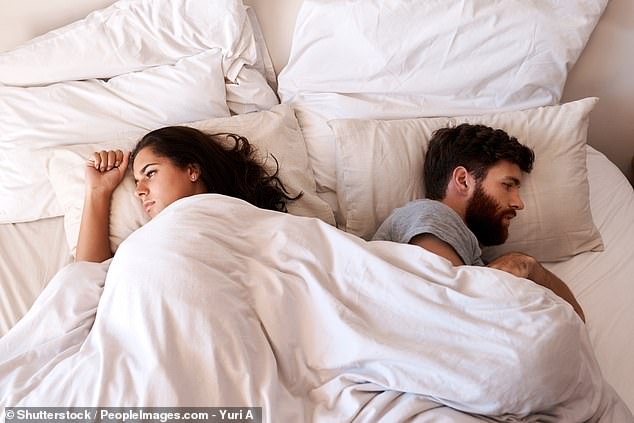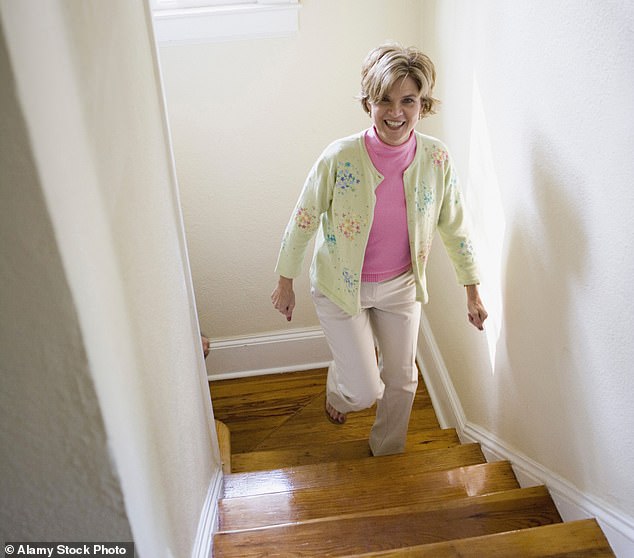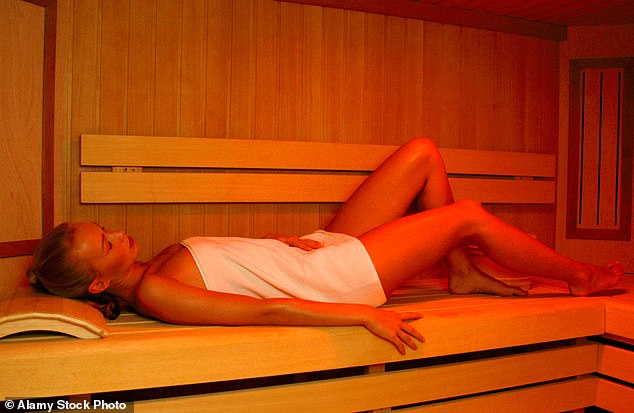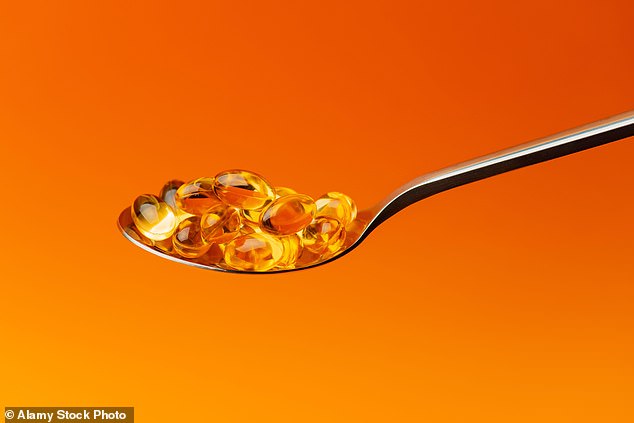Table of Contents
Judging by the lackluster autumn weather, summer is officially over, and with it the natural boost it provides to our health.
Britons get most of their vitamin D (a nutrient produced by exposure to sunlight, crucial for bone and muscle health, and which also has an impact on energy levels) between March and September.
Pleasant weather encourages people to get outside and exercise, and fall heralds the arrival of cough and cold season.
Research also shows that cold, damp weather affects our mood.
Fortunately, it’s not all bad news. Experts say there are simple steps you can take to replicate that summertime feeling of well-being, even if the nights get longer.
Brits get most of their vitamin D between March and September when the weather is brightest, but there are still simple ways to stay fit as temperatures drop.

People singing in a choir. Research shows that joining a choir can release endorphins that increase happiness and well-being.
Join a choir (or go see a comedy) to beat the winter blues.
One in five Britons suffers from low mood during autumn and winter, a phenomenon known as seasonal affective disorder (SAD) which also causes a drop in energy levels.
The cause is not fully understood, but research suggests that lack of sunlight may lead to lower levels of the hormone serotonin, which is linked to mood and sleep and can trigger depression.
Some patients are offered antidepressants, but experts say they are not always necessary.
In fact, research suggests that joining a choir can release feel-good endorphins (chemicals that help relieve pain or stress), increasing happiness and overall well-being.
An Italian study found that elderly people who sang in a group every week saw their anxiety and depression levels significantly reduced in just three months.
“Singing is so positive for mental health,” says Dr Nisa Aslam, a GP in Watford. “Not only does it boost your mood, it also gives older people the chance to interact with other people, which is vital at this age.”
Alternatively, watching stand-up comedy with friends can also boost your mood, according to a Finnish study.
Get separate duvets to give your immune system a timely boost
It’s a debate every couple is familiar with: Is the bed too warm?
Research suggests that women are more sensitive to temperature changes in the bedroom than men.
A US survey found that nearly a fifth of women say they feel too hot when trying to sleep, compared with just a tenth of men.
This can significantly affect sleep quality, which in turn weakens the immune system and increases the risk of winter illnesses, according to a sleep medicine expert at the University of Oxford.

Sleep quality affects immune system and risk of winter illness, says sleep medicine expert
Professor Colin Espie says sleep plays a “crucial role” in controlling infections, adding: “Good sleep promotes the distribution of immune cells (lymphocytes) and the production of protective cells (cytokines).”
Experts recommend that couples purchase separate duvets to suit their individual needs.
“Some people need a 4.5 tog duvet all year round, while others need a warmer 13.5 tog,” says sleep behaviour expert James Wilson, known as The Sleep Geek.
‘A change of about 0.5 degrees in your body temperature is enough to start waking you up, so choosing the right duvet can make a big difference.’
Climb stairs to increase your winter activity
When the temperature drops, so do our activity levels. Older people in particular worry about slipping and falling on icy pavements.
But maintaining a good level of fitness is crucial as it reduces the risk of diseases such as heart disease and diabetes.
Experts say it’s possible to reap the benefits of exercise by doing activities indoors. This can include lifting weights or using resistance bands, but it can also be something as simple as climbing stairs.

Climbing stairs is a good way to stay active when temperatures drop
Researchers at the University of East Anglia found that people who regularly climb stairs are 25 percent less likely to die young than people who avoid them.
They say it is linked to a lower risk of cardiovascular disease, including heart attack, heart failure and stroke.
A US study found that stair climbing at a moderate pace for ten minutes provided a greater energy boost than a dose of caffeine. Cardiologist Malcolm Finlay, from Barts Health NHS Trust, said: “Exercise is the world’s best drug and I strongly encourage people to take the stairs whenever possible.”
Follow the advice of the Scandinavians… and visit a sauna regularly
Visiting a sauna can reduce the risk of heart disease and stroke.
And spending just 15 minutes on an activity, five days a week, can even help alleviate mild symptoms of depression, research has shown.
It’s no wonder they’re so popular in Finland, where temperatures can often drop to minus 40 degrees Celsius in winter and some parts of the country remain almost in darkness for 50 days a year.

Spending just 15 minutes in the sauna five days a week can reduce the risk of heart disease and stroke, and even help alleviate mild symptoms of depression.
Finland has topped the world happiness rankings for the past six years.
But whatever the cause of this joy, the health benefits of sauna are believed to come from lowering blood pressure.
Saunas are safe, even for older adults, although it is important to take precautions.
“People who use saunas should make sure they drink enough water,” says Dr Finlay.
“And if someone is new to using saunas, they should be careful not to stay in it for too long.”
Try other ways to increase your vitamin D levels
One in six adults in the UK, as well as almost a fifth of children, are thought to be vitamin D deficient, and the NHS recommends that everyone takes a vitamin D supplement during the darker autumn and winter months.
Multiple studies conclude that taking daily tablets can increase bone and muscle strength, as well as combat fatigue in those suffering from a deficiency.
“As the sun disappears in the UK, vitamin D levels will drop quite quickly,” says Dr Dean Eggitt, a GP in Doncaster.

Vitamin D in Omega 3 capsules. The NHS recommends that everyone takes a vitamin D supplement during the darker autumn and winter months.
He explains that most of us are deficient in vitamin D during the winter and that this “will have an effect on our physical and mental health.”
Some experts, including epidemiologist Professor Tim Spector, founder of diet app Zoe, suggest that eating more oily fish and mushrooms (both of which naturally contain vitamin D) may even be more effective than supplements.
Professor Spector and his wife, dermatologist Dr Véronique Bataille, also recommend not using sunscreen during the winter, so that sunlight, however weak, can penetrate the skin and produce some vitamin D.
But Dr Eggitt, while agreeing that vitamin D can be obtained from foods such as fish and mushrooms, cautions that “you would have to eat enormous quantities to match what you get from pills”.
She adds: “That’s why GPs so often prescribe vitamin D supplements, and we can see the difference they make.”


